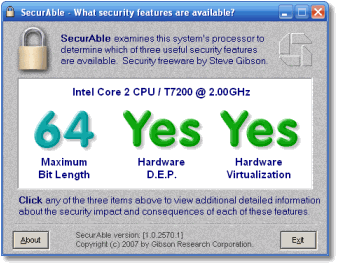1
0
I have a MacBook Pro and I've run VMware Fusion's unity mode and Parallels' cohesion mode along side the Mac OS X, and both work pretty seamlessly. I figured XP Mode in Windows 7 would be something similar, but I then learned my machine requires hardware virtualization support, which it does not have.
My machine is an HP dc7800. That's a dual core 2.2GHz machine with 4GBs of RAM. Certainly it has the horsepower to run a virtual environment alongside the primary OS.
I'm wondering:
1) Why Microsoft decided to make hardware virtualization a requirement
and
2) What am I missing? Is the experience similar to Parallel's cohesion mode / Fusion's unity mode?
Thanks!

Ill try running the image in Virtual Box and let you know – Ivo Flipse – 2009-07-30T06:43:46.460
It's nagging about permissions, but it does recognize it as a normal virtual hard disk. So I would suggest trying out Virtual Box (or whatever) to load it up. – Ivo Flipse – 2009-07-30T06:58:55.370